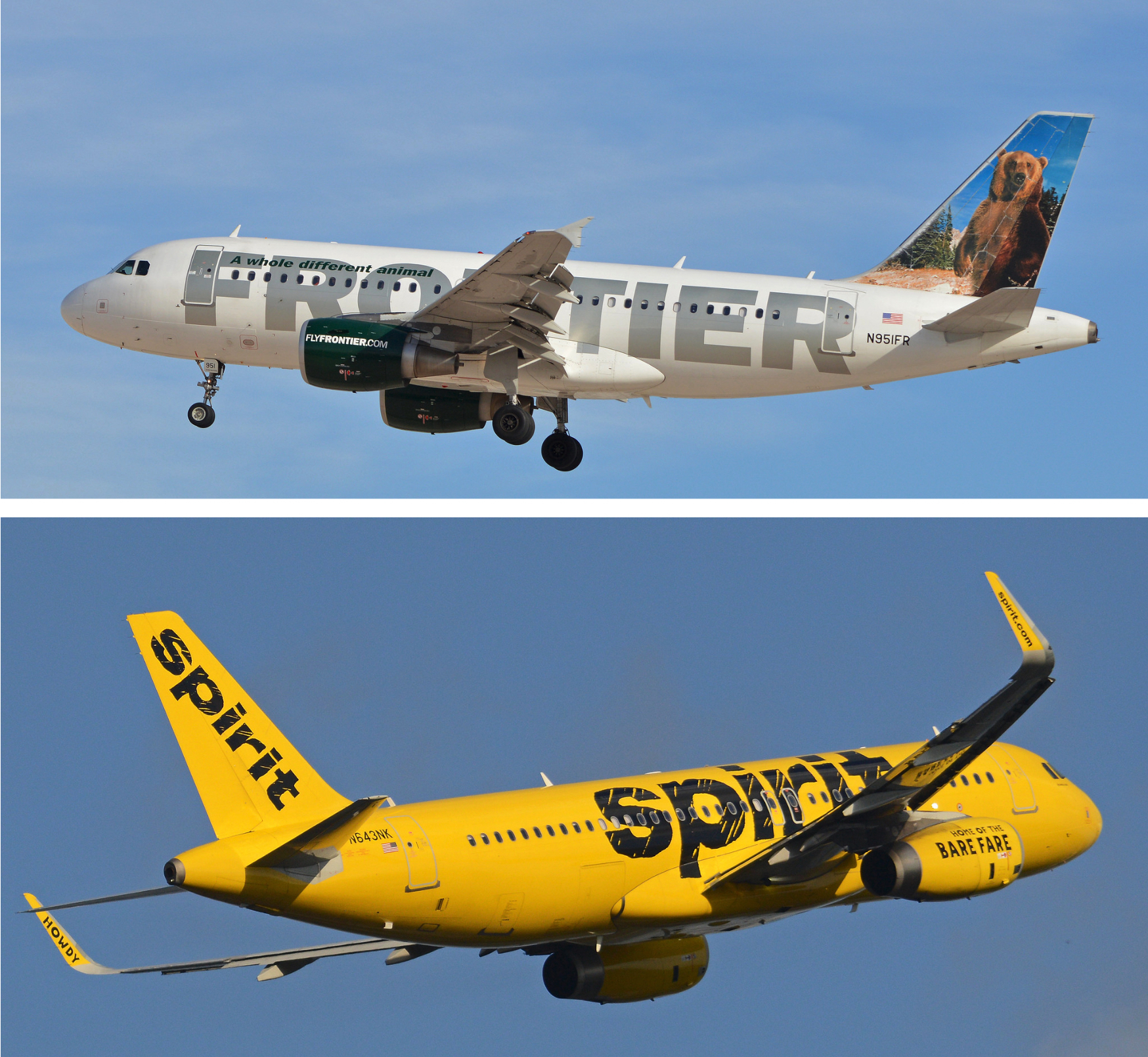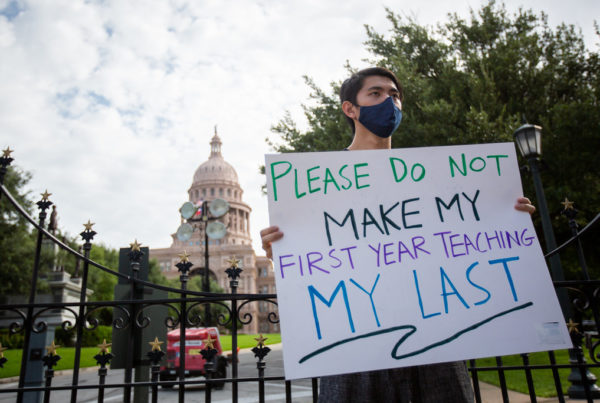The country’s two largest ultra-low cost carriers could merge, if Frontier Airlines’ bid to buy Spirit Airlines is approved.
Kyle Arnold, aviation writer for The Dallas Morning News, spoke to Texas Standard about how the move might affect Texas travelers and airports. Listen to the interview with Arnold in the audio player above or read the transcript below.
This interview has been edited lightly for clarity.
Texas Standard: There were 22,000 flights in and out of Texas by Frontier and Spirit combined last year. If you bring that down to one carrier, will the number of flights in and out of Texas drop off?
Kyle Arnold: That’s the question that everybody’s asking when we have these big mergers. What they always say is that there’ll be more flights for everyone, and what the consumer advocates say is that this will just give them the chance to consolidate.
What does this mean for competition, especially Texas-based American and Southwest airlines? Where does it seem like this new, low-cost carrier will be based?
Yeah, these are two big carriers that are really dominant on different sides of the country: Spirit in the East and Frontier in the West. But they’ve both been aggressively growing in Texas, particularly Dallas-Fort Worth Airport and in Houston Intercontinental. They’ve added flights to Mexico and lots of vacation destinations. But also business spots like Philadelphia, Phoenix, San Francisco and New York. It’s really interesting what kind of competitor we could get for American, Southwest and even United down in Houston – those are the really the three dominant carriers here in Texas.
Federal regulators are surely going to have plenty to say about all of this. What are you hearing in the early stages?
That’s a good question because the Trump administration was a lot softer on combinations and antitrust rules. The Biden administration has actually come out against American Airlines, who doesn’t have a merger but is having a partnership with JetBlue for a lot of their stuff going on on the East Coast in the Northeast. They’ve come down pretty hard on American and said they’re going to try to stop the partnership.
A lot of people say, you take the sixth-, seventh-, eighth-biggest competitors in the country, combine them and make the fifth-largest airline in the country, that could have bad repercussions for everyone. It’s really a question of what happens when you take two of these smaller airlines and put them together, and if that hurts consumers.
What does this mean for the low-cost-fare business model?
These airlines are ultra-low cost, even below JetBlue and Southwest. Spirit and Frontier have been the most aggressive among the U.S. airlines about charging for everything – charging for food, for access to basic internet, for choosing your seat or adding carry-on bags. They really cater to leisure travelers, people that don’t need to be in New York at 11 a.m.; they just want to go on a vacation somewhere. They can charge $50 fares each way. If you’re willing to travel without any luggage or very little luggage, it can be a lot cheaper.
But they’ve actually come in this pandemic under a lot of pressure from the big airlines that are competing for the same vacation travelers. Because, as we all know, it’s been a lot harder and there’s been a lot fewer people on airplanes over the last two years.














